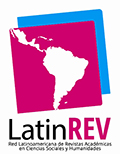The right to health and the right to drinking water and sanitation. Study of their mutual relations and their international protection, with special analysis of their implications for indigenous peoples
Abstract
This Article analyzes the several sources of international normative recognition and protection of the right to water and sanitation. It further studies its different consequences with regard to: (i) the right to health; (ii) the human rights as a whole; (iii) the State’s obligations to provide adequate protection to the human rights and (iv) the specific rights of the indigenous and tribal peoples. For those purposes, the Article, in the first place, expounds the normative recognition granted to the right to health, on the one side, and the right to water and sanitation, on the other side. Secondly, it analyzes the relationship between the right to health and the other human rights, in order to contextualize its relationship with the right to water and sanitation. Thirdly, building upon the aforementioned notions, it describes the obligations of the States with regard to the right to water and sanitation. And finally, it analyzes the specific implications of the right to health and the right to water and sanitation of the indigenous and tribal peoples.








_(1)_.png)

_(2).png)

